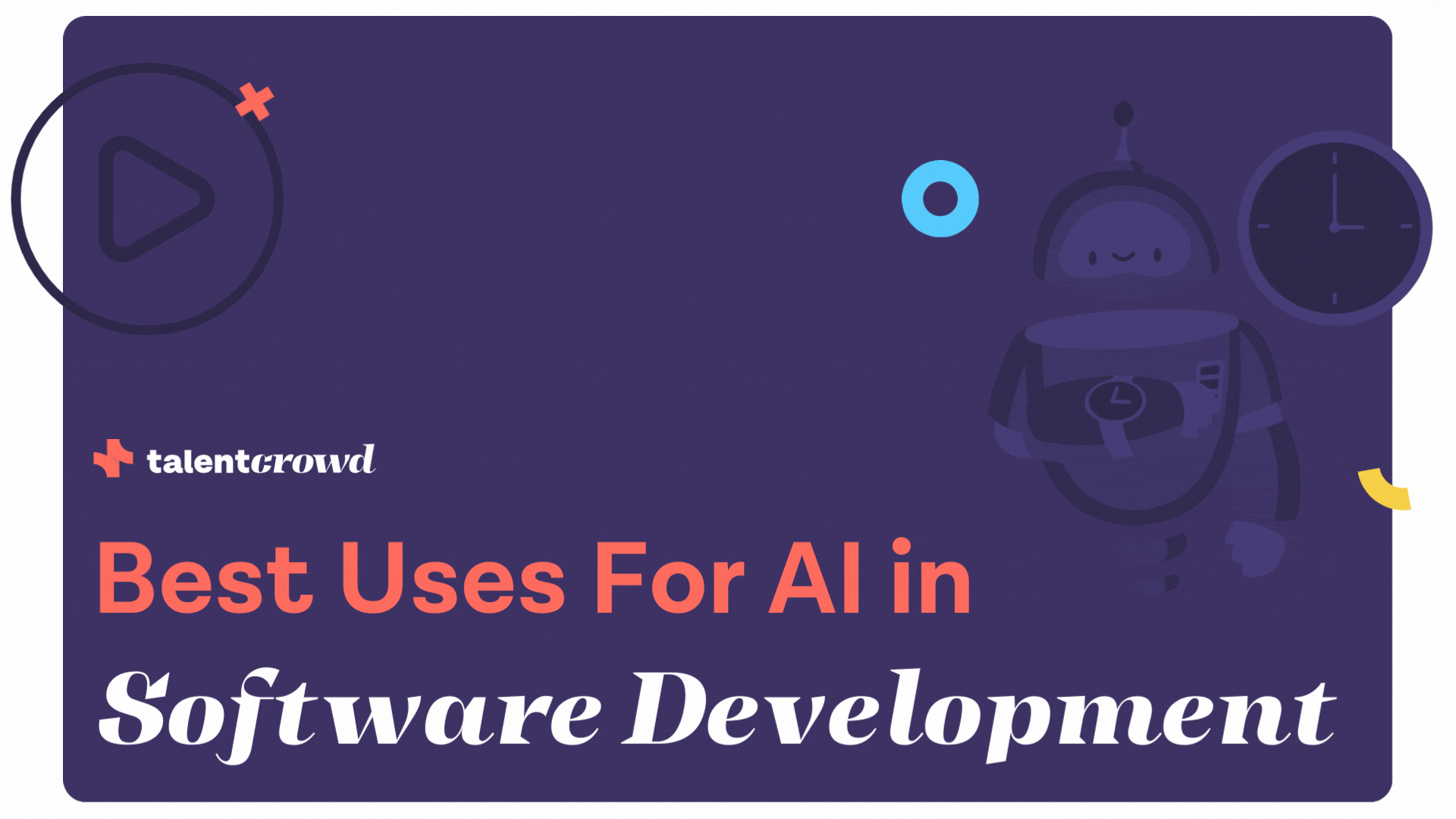Fintech and medical software development – two industries seemingly worlds apart, yet they share more commonalities than one might initially think. From regulatory compliance and data security concerns to difficulty finding qualified developers, fintech and medical software development are surprisingly similar when you look closer.
Interruption: fintech = financial + technology
So let’s do just that and dive into the world of fintech and custom medical software development. We’ll uncover common issues, solutions, and what they mean for your business and the future of software development.
Similarities Between Fintech and Medical Software Development
Despite catering to different sectors, fintech and medical software development share some common requirements shaping the tech ecosystem.
So what exactly aligns these two seemingly different industries? Well, they share three significant similarities:
Regulatory Compliance
Both industries are heavily regulated to protect the interests of customers and patients. While the exact data can differ, it’s all highly personal and sensitive information. Because of this, personal financial and medical information have a lot of laws surrounding their use.
Organizations handling this information must work within strict regulations or risk substantial fines (or worse!). These similarities require a workforce highly skilled in both technical knowledge and understanding of the legal landscape. It also means you need to be able to hire developers you can trust.
Data Security
Cybersecurity has never been more critical with the increasing volume of digitized financial and health data. On top of the legal ramifications of insecure data, there are also direct impacts on the business. Lost or stolen data can ruin your client relationships and public image.
Consequently, both sectors must prioritize and invest heavily in data security measures. This means that new development projects need to solve complex problems and keep massive data sets secure from outside threats.
User Experience (UX)
Both fintech and medical software developers must strive to create intuitive and user-friendly applications. Whether it's a banking app that helps users manage their finances or a patient portal that simplifies access to medical records, the end-user experience is a significant factor driving software development in both industries. This shared emphasis on user-centric design means both sectors seek developers (and designers!) with strong UX skills.
The shared needs of fintech and medical software development require versatile, skilled, and innovative developers. Finding and hiring said developers is challenging due to geographic and talent pool limitations (we’ll get to a solution for this; just keep reading!).
Challenges Of Medical Software And Fintech Development
Navigating the complexities of fintech and medical software development is challenging, and it's essential to understand the specific challenges these sectors present.
Fintech Development Challenges
- Security Requirements: Financial services involve highly sensitive customer data. Therefore, fintech software developers must prioritize robust security measures to protect against data breaches and maintain user trust.
- Regulatory Compliance: Fintech companies operate under rigorous regulatory scrutiny. Regulations revolve around properly handling sensitive financial data and preventing fraudulent activities. Depending on the geographical market, developers must ensure that the software they create adheres to various regulations, such as GDPR, CCPA, or PSD2.
- Integration Complexity: Fintech solutions must often integrate with existing banking systems and other financial platforms. This integration requires a high level of precision and expertise.
Medical Software Development Challenges
- Regulatory Compliance: Much like fintech, medical software is subject to strict regulations, including HIPAA and FDA approval for medical devices—these mandate rigorous standards for protecting and handling confidential patient information. Developers must be well-versed in these requirements to ensure compliance.
- Interoperability: Medical software must often interact with other systems, such as Electronic Health Records (EHRs) or medical imaging devices. Ensuring smooth interoperability is a significant challenge.
- User-Centered Design: Healthcare professionals require intuitive and easy software under high-stress conditions. Therefore, focusing on user-centered design is crucial in medical software development.
- Data Security and Privacy: With the sensitive nature of health information, data security, and privacy are of the utmost importance. Developers must implement stringent measures to safeguard this data.
These challenges require a competent, skilled, experienced development team to navigate successfully.
The Struggles Of Specialized Development
In addition to the industry-specific challenges faced in fintech and medical software development, unique hurdles are tied to working in niche sectors.
- Finding Qualified Developers: The intricate nature of fintech and medical software development demands developers with a unique blend of technical prowess, industry knowledge, and regulatory awareness. This specialization makes finding capable, experienced developers more challenging.
- Understanding User Needs: Niche sectors like fintech and medical software have unique user needs. For example, medical professionals require systems that can instantly deliver precise and reliable information, while financial advisors need tools to help them make accurate predictions and manage risk. Developers must deeply understand these unique needs to create effective solutions.
- Keeping Up with Rapid Innovation: Both fintech and medical software are areas marked by rapid innovation. New technologies, like AI, blockchain, and telemedicine, are constantly emerging and disrupting these sectors. Developers must stay current with these trends to keep their products relevant and competitive.
- High Stakes: Errors in fintech and medical software aren't just inconvenient—they can have significant real-world consequences, like financial loss or impact on patient care. This high-stakes environment adds another layer of pressure on developers.
These requirements can make it very difficult to find qualified developers, especially in areas without a large population of experienced developers.
Dev Joke Break!
Did you hear about the software developer who got stuck in the shower?
They read the instructions on the shampoo: Lather, Rinse, Repeat...
They've been stuck in an infinite loop ever since! 😂
Developer Shortage - Making Matters Worse
The demand for software developers is at an all-time high, especially in growing fields like fintech and medical software development. Unfortunately, this surge in demand isn't balanced by the available talent supply. Let's dig a little deeper into this pervasive issue:
- Market Dynamics: The digitization of services across sectors, including finance and healthcare, has significantly boosted the need for software developers. However, the growth in the number of qualified developers hasn't kept pace. This disparity creates a significant talent gap in the market, leading to a need for more developers.
- Specialized Skills: Both fintech and medical software development require a particular set of skills and domain knowledge. A fintech application developer must understand regulatory compliance, security protocols, and the latest financial technologies. On the other hand, a developer in the medical field needs knowledge of healthcare regulations, patient privacy laws, and medical terminologies. These specific requirements make finding a qualified developer even more challenging.
- Regional Limitations: The need for more developers is even more pronounced in certain regions. The local talent pool for software developers can be relatively small in areas like the Midwest and other rural locations. This regional imbalance further exacerbates the talent shortage issue.
Addressing the developer shortage is challenging, but it's not an insurmountable problem either. The advent of remote development offers a promising solution, opening access to a global pool of talented developers.
The Remote Development Advantage
Now that you know all of the problems that come with developing software for these industries, what’s the solution? For many, it could be hiring remote developers.
We’ve talked plenty about the advantages of remote development in the past, so if you want a more detailed breakdown, you can check out this blog. For now, we’ll focus on some of the key advantages of these industries.
- Access to a Larger Talent Pool: Remote development opens up a world of opportunities. Literally. It allows companies to tap into talent pools that are unavailable due to geographical boundaries. Without those limitations, you can access more developers with diverse skills and experiences to bring the innovative solutions you’ve been looking for.
- Cost-Effective Solutions: Companies can often find more cost-effective solutions by hiring remote developers. Hiring a remote development team can be cheaper than maintaining an in-house team, especially when considering costs like office space, equipment, and additional benefits.
- Scalability: Scaling up or down with a remote development team becomes more manageable. Depending on the project's requirements, you can bring more developers on board or reduce the team size without worrying about long-term contracts or the logistical issues associated with physical office space.
- Retention and Productivity: Studies have shown that remote workers often have higher job satisfaction and are more productive. The flexibility of remote work can lead to better work-life balance, resulting in higher job satisfaction, lower turnover rates, and increased productivity.
However, the benefits of remote development don't mean it's without its challenges. Successful remote development requires efficient communication, robust project management, and a well-integrated team.
Onshore Remote Development - An Industry Necessity
While outsourcing is an excellent way to access top talent and lighten the load on your internal team, you need to protect your sensitive information. The security concerns and complex issues in these worlds require onshore developers.
Remote development has revolutionized how businesses approach their software needs, particularly in specialized industries like fintech and medical software. However, specifically having onshore remote development services can offer distinct advantages:
- Regulatory Compliance: Both fintech and medical software development are fields that involve strict regulatory standards. Having an onshore team can simplify compliance as the developers are already familiar with the local laws and regulations, decreasing the risk of legal issues.
- Secure Communication: Privacy and data security are paramount in both fields. With onshore developers, communication happens under the protection of the same nation's data privacy laws, ensuring that sensitive information is handled securely.
- Cultural and Business Understanding: Onshore developers better understand the local business environment, cultural nuances, and user expectations. This understanding can translate into more intuitive software design and user interfaces, enhancing user experience and product success.
- Efficient Collaboration: While remote work transcends geographical boundaries, having developers in the same country and potentially in the same time zone facilitates smoother communication and collaboration. It ensures alignment in work hours, quicker turnaround times, and more effective problem-solving sessions.
- Quality Control: Onshore remote development allows for more rigorous control over the software quality developed. Local standards and quality expectations are more likely to be met, and any necessary changes can be addressed swiftly.
While onshore remote development might come with higher costs compared to offshoring, the benefits of compliance, communication, and quality often outweigh the cost difference, especially in sensitive industries like fintech and medical software development. Talentcrowd, with its team of onshore remote developers, is perfectly poised to help your business navigate these challenges and drive your projects to success.
Talentcrowd – Your Partner in Remote Development
At Talentcrowd, we connect companies with high-caliber, onshore remote development teams. With us, you bypass the limitations of your local talent pool, accessing a network of skilled developers ready to take your fintech or medical software project to the next level. We understand the unique challenges of both industries, making us uniquely positioned to match you with the right talent. Be it compliance, data security, or AI, our developers come equipped with the skills you need to succeed.
The challenges associated with specialized development further underline the value of partnering with Talentcrowd. Our onshore remote development team is not only technically proficient, but they also have a keen understanding of the nuances of these niche sectors. This expertise allows us to bridge the talent gap, stay ahead of innovation, and deliver solutions that truly meet the unique needs of the fintech and medical software industries.
Final Words
Fintech and medical software development might seem like different worlds, but they share more than just a few passing similarities. Remote development teams will be vital in overcoming talent shortages as we embrace a digital future. With Talentcrowd, you're not just hiring a remote team; you're hiring a solution, a partner, and a roadmap to success.



